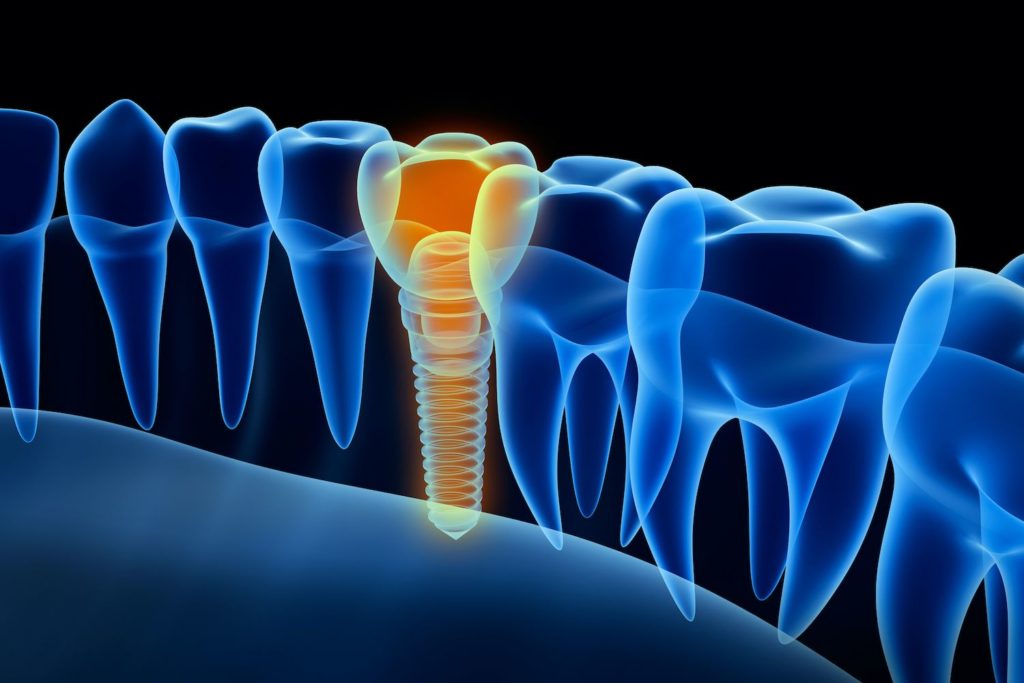Replacing missing teeth will enhance the look and function of your smile and prevent further dental harm. You can find the most comprehensive tooth replacement treatment through implant dentistry.
Your dentist will thoroughly evaluate your smile to ensure you are an ideal candidate to replace lost teeth with implants. But without proper care, a dental implant might fail and need removal by your dentist. Read on to find advice from your dentist for getting the most out of your dental implants and ensuring long-lasting restorative benefits.

How to Protect Your Dental Implants
Follow Aftercare Guidelines from Your Dentist
Before proceeding with implant dentistry, your dentist will examine your oral health and jawbone structure to learn if you can support the implant fixture. As you proceed through each step of the dental implant process, you should follow your dentist’s instructions.
When you receive the anchor of the implant in your jaw, the surgical site will need several months to heal. During this period, the anchor will fuse to the jawbone, providing optimal support for your dental prosthetic. As this process occurs, you will need to be gentle with this part of your mouth.
Your dentist will give you guidelines to ensure you do not disrupt your recovery but still take proper care of your smile. You will still need to keep your smile and the surgical sites clean for them to stay healthy. The sites may feel sore after this procedure, but your dentist can give you pain management advice so that you can feel comfortable.
After this recovery, you will return to your dentist’s office to receive your custom prosthetic teeth attached to these anchors. You will need to continue caring for your dental implants once this process is complete.
Though you will not need extra maintenance for these fixtures, you should still practice thorough oral hygiene. If you notice swelling, bleeding, or pain from your implants, this is abnormal. Let your dentist know about any changes in your smile or complications related to your new fixtures.
Continue Proper Preventative Dental Care
After you receive your permanent prosthetics for your dental implants, you will likely need to see your dentist again for a follow-up appointment. They will check your fixtures to ensure they continue to function and appear as they should. If there are signs of failure, like severe pain or swelling in the gums, the dentist will need to remove the implant.
To reduce the chances of this happening, take proper care of your smile and implants at home. This means practicing good oral hygiene, which will entail brushing your teeth twice a day and flossing daily. Your dentist might suggest using a special brush to better clean plaque and other harmful residues near your implant.
Visit your dentist for regular teeth cleanings and oral health exams too to maximize your preventative dental care. You can adhere to your usual diet and oral functions but tell your dentist about any abnormal symptoms.
